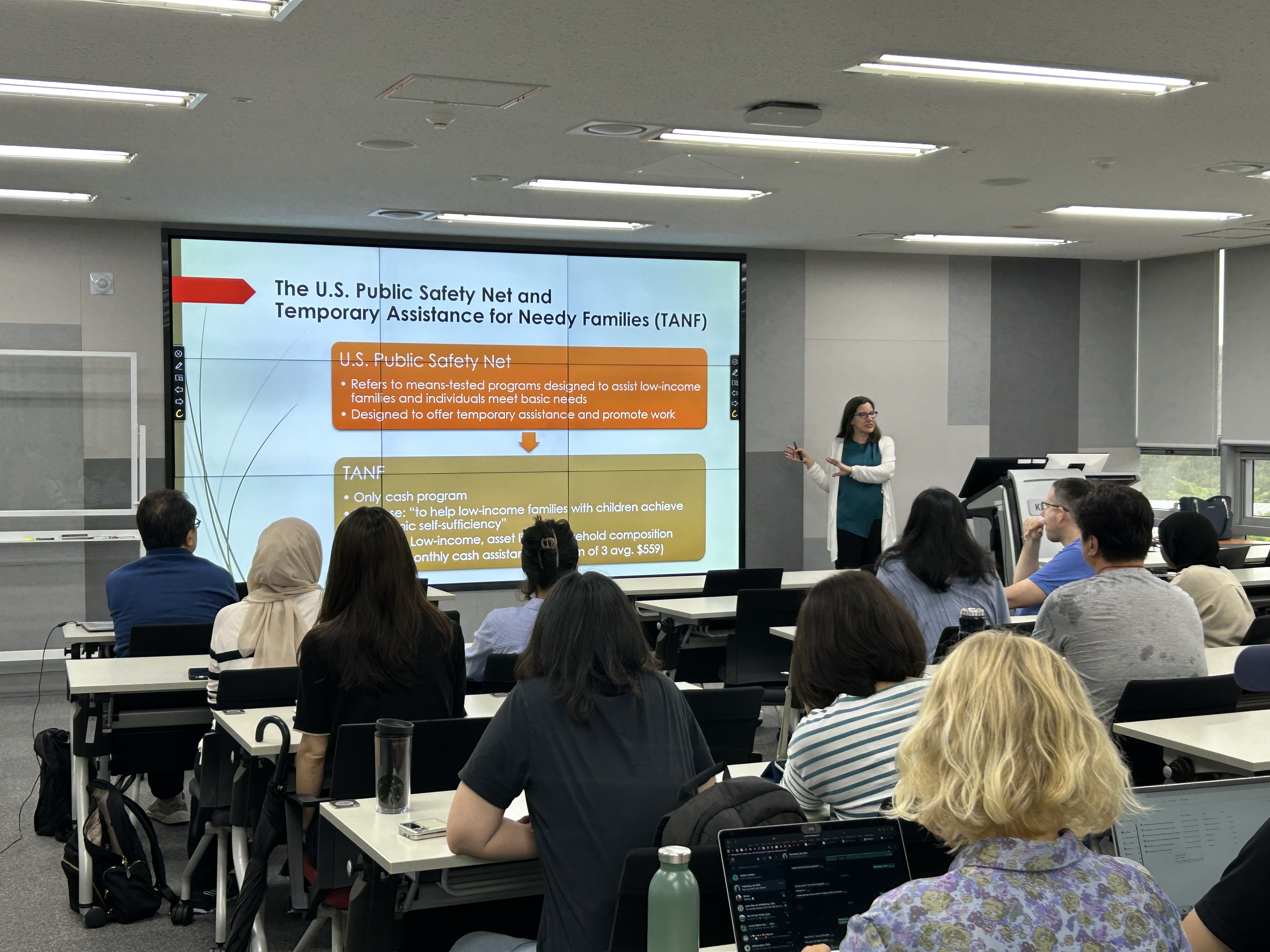Have you ever tried to explain your point of view, but couldn’t find the right way to say it? Sanford Jaffe and Linda Stamato, co-directors of the Bloustein School’s Center for Negotiation and Conflict Resolution and members of the school’s graduate faculty, led a workshop to expose Bloustein students to constructive negotiation, consensus building, and problem-solving approaches to conflicts.
Stamato, a graduate of Rutgers University and New York University, has served as a consultant to the Ford and Rockefeller Foundations and as Chairman of the Board of Governors at Rutgers University. Jaffe, a graduate of Harvard Law School, is the author of several publications in the fields of dispute resolution, public interest law, and legal education, and is also a member of the New Jersey Supreme Court Committee on Dispute Resolution.
Students with varied educational backgrounds–from planning and policy to health administration to social work–attended the workshop. Jaffe and Stamato asked the attendees what intrigued them to attend. One planning student said, “I am interested in transportation. In the future, if I want to change something as simple as a parking space, I know I am going to face issues, so I want to establish skills to get past those barriers.”
Jaffe and Stamato told the participants they would try their best to fit a 16-week course into a two-hour workshop to give them a taste of their class. They began by explaining the steps of Interest Based Negotiation:
- Identify and pursue interests, not solely positions
- Frame issues for constructive negotiation
- Use objective criteria (e.g., CPI, comp salary, etc.)
- Generate options
- Identify and use your alternatives to a negotiated agreement
- Preserve and strengthen relationships, especially if they matter because you may need something from this person in the long run.
Jaffe and Stamato explained that the importance of objective criteria is to avoid biases, and that the more options given means an opportunity to meet the needs of everyone in a case. “Keep in mind,” they said, “BATNA.” BATNA stands for Best Alternative to the Negotiated Agreement, which introduces parties to a problem-solving process and seeks to mitigate any issues.
After explaining the overall process of negotiation and conflict resolution, the attendees broke into groups to role-play and arbitrate a case. The purpose of the exercise was to familiarize students with arbitration and mediation, and how each process impacts the result. An arbitrator tells parties what they expect will be the end result. A mediator helps the parties in leading a conversation and giving a team-building energy to the situation. Arbitrators typically hide information during a case. Mediators are more transparent and willing to disclose more information. Arbitrators want to win the case. Mediators want to solve it.
Stamato noted, “If you win in court, you don’t actually win because the problem continues…only in a different direction.” Jaffe and Stamato mentioned they spend a lot of time in class discussing how to deal with difficult people. They asked the attendees what they would suggest their potential clients do to think creatively in proposing a solution. One attendee suggested that each party list what they want from the negotiation and what they feel the opposing party wants. Stamato agreed and added, “This is one of the four ways to deal with litigation; acknowledging what the other side wants.” Jaffe also agreed, explaining that effective negotiators ask questions to bring conversations alive, not simply to try to nail-down a win.
Jaffe and Stamato acknowledged that mediation isn’t an easy process and resistance is expected, but it does not mean it cannot be mitigated. “Always try and build trust and credibility with the parities to give them the confidence to move the conversation forward.”
Sanford Jaffe and Linda Stamato have an open-door policy on this topic and welcome students who may wish to discuss this and related topics on a one-to-one basis.
Anna Quan, a first-year planning student commented, “This workshop/class is useful for both professional and personal life. Knowing the language and process can help us with future problems.”



